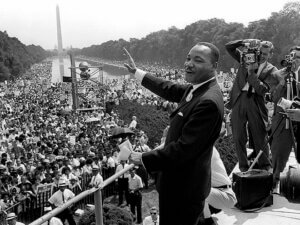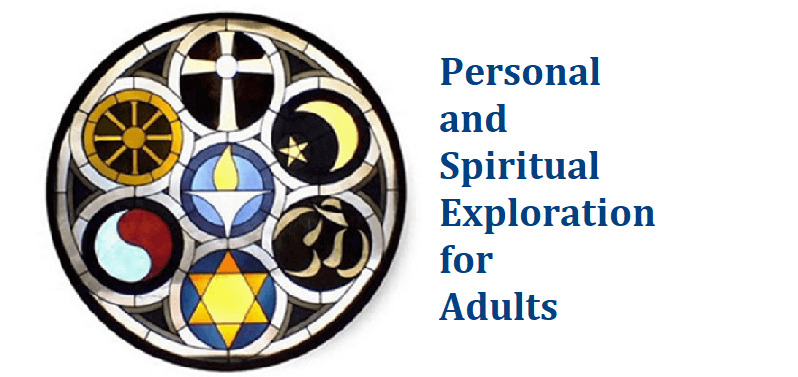
At our monthly Freethinker Forum on Sunday, Jan. 27th, AAHS (Agnostics, Atheists, Humanists & Secularists) considered the under-appreciated legacy of Humanism and non-religious activists of color in the Civil Rights Movement, which is, of course, well-known for its Christian overtones and relationship to liberation theology. A. Philip Randolph, for one, is today a lesser-known figure in that struggle. He was a brilliant labor organizer and the driving force behind the 1963 March on Washington at which Martin Luther King, Jr. delivered his famous “I Have a Dream” Speech. (King referred to him as “The Chief.”) Randolph was an open atheist and a signer of Humanist Manifesto II.
We also looked at some surprising aspects of Dr. King’s own personal theology which are not widely appreciated — and might be more controversial if they were. Digging into King’s early academic papers from seminary and graduate school, writer Robert Scofield illuminates some of the prophetic leader’s pointedly unorthodox beliefs regarding Jesus, God, and the Bible. Similar to some progressive Christians of today, King did not believe in the divinity of Jesus in a supernatural sense or in the literal interpretation of scripture, including a virgin birth or bodily resurrection.
In a paper entitled “The Humanity and Divinity of Jesus,” he wrote:
“The orthodox attempt to explain the divinity of Jesus in terms of an inherent metaphysical substance within him seems to me quite inadequate. To say that the Christ, whose example of living we are bid to follow, is divine in an ontological sense is actually harmful and detrimental. To invest this Christ with such supernatural qualities makes the rejoinder: ‘Oh, well, he had a better chance for that kind of life than we can possibly have …’ So that the orthodox view of the divinity of Christ is in my mind quite readily denied.”
Scofield notes that:
“Dr. King’s understanding of the Bible is quite simple: he believed it was written in a pre-scientific world and used language that was representative of its era. He flatly rejects a literal interpretation of biblical stories, claiming such a reading would be ‘absurd’ in a Copernican world. The pre-scientific worldview that informed the authors of the Bible is clearly inadequate for modern Christians. Written by men trying to understand their social environment and place in the cosmos, the Bible is filled with ‘mankind’s deepest devotional thoughts and aspirations.’ Readers who accept the Bible literally are faced with impossibilities and deep contradictions, but those who read it as myth encounter ‘many profound truths which one cannot escape.’”
In light of these ideas, perhaps, it makes even more sense that the Kings had a strong affinity for our UU movement, often attending Unitarian churches when they lived in Boston. Dr. King delivered the annual Ware Lecture to the UU General Assembly in 1963, Don’t Sleep Through the Revolution. In the 1990s, Coretta Scott King confided to UU World that they had given “a lot of thought to becoming Unitarian at one time, but Martin and I realized we could never build a mass movement of black people if we were Unitarian.”
We had a lively discussion in the cottage with some longtime regulars and a number of newcomers. Our meetings typically include UUSM members and friends along with members of our 700+ member Meetup group from the wider community. Freethinker Forums are always a good opportunity to connect with inquisitive people you may not know yet.
You can also join our private Facebook group for online connections and further discussion.

